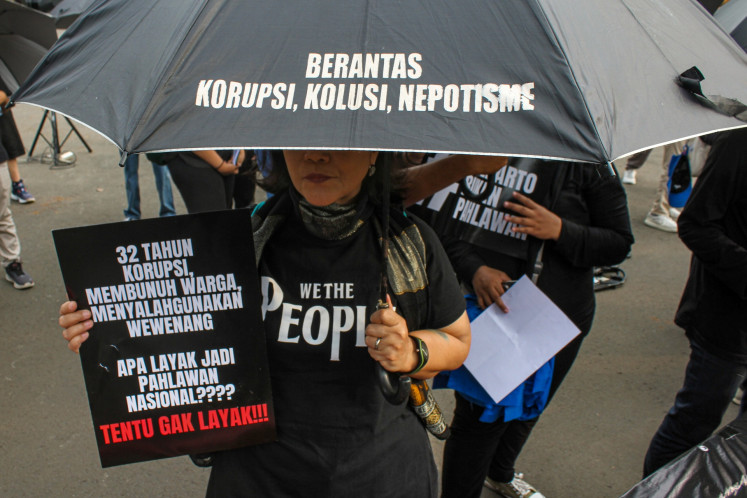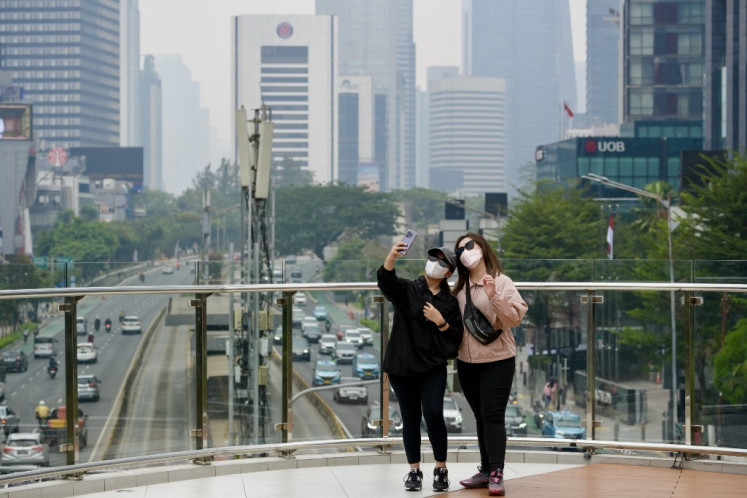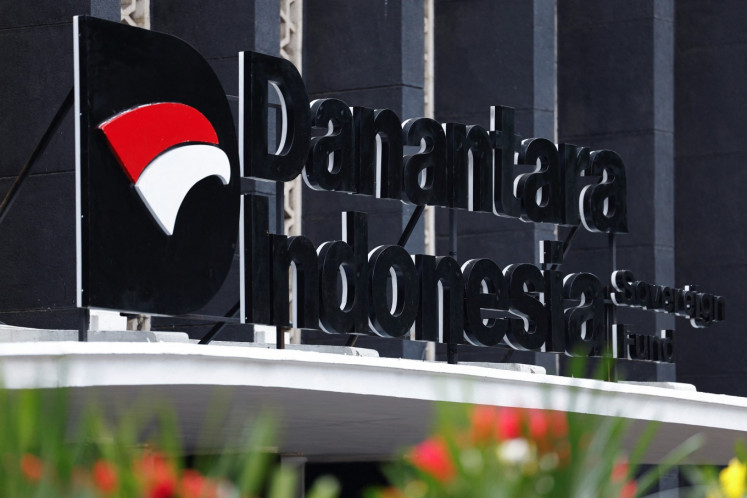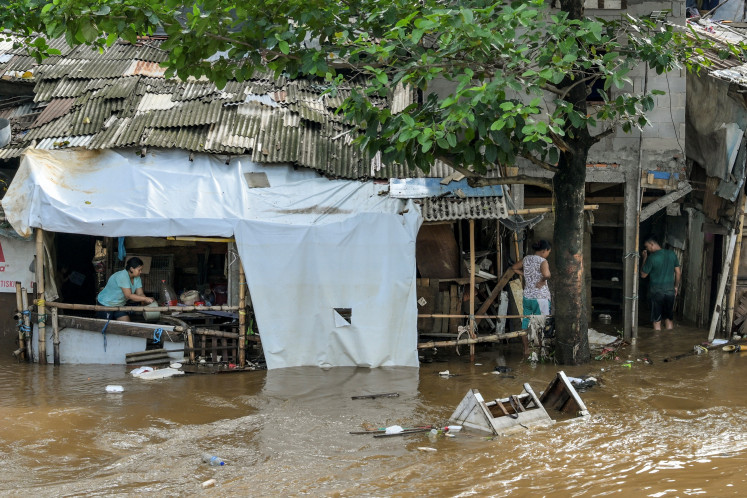Popular Reads
Top Results
Can't find what you're looking for?
View all search resultsPopular Reads
Top Results
Can't find what you're looking for?
View all search resultsThe future of civilization: Indonesia's contribution
It’s time to renew the spirit of the Non-Aligned Movement for the 21st century.
Change text size
Gift Premium Articles
to Anyone
W
hen preparing for the establishment of Indonesia as an independent nation state, our founding fathers did not concern themselves merely with the fate of Indonesia, while ignoring the rest of the world. The profound religious, philosophical, ethical and political principles upon which they established our nation were not designed to promote the interests of Indonesia alone. Our founding fathers contemplated the future of the entire world, proffering a set of noble aspirations that others could embrace, while striving to create a more dignified and auspicious future for all human beings, and for civilization as a whole.
The first paragraph of the preamble of Indonesia’s 1945 Constitution, which constitutes the point of departure for the entire train of thought subsequently elaborated within the body of this foundational text, reads: “Independence is the right of every nation, and for that reason, colonialism must be abolished throughout the earth, for it is inconsistent with humanitarianism and justice” (emphasis added). This statement is of profound significance, above and beyond the obvious fact that our founding fathers were concerned for the welfare of humanity and held high aspirations in regard to the future of global civilization. For the preamble enshrines the establishment of a truly just and harmonious world order as central to the identity of the Unitary State of the Republic of Indonesia, constituting a vital national interest to be actively pursued as the highest goal of Indonesian foreign policy.
We live in an anxious world. A world of fear and anger, which has borne the cumulative weight of injustice, enmity and violence for thousands of years and shows few signs of abating. Nor should we forget that our own communal struggle to improve our nation’s fate is inextricably tied to geopolitical dynamics occurring far beyond our borders.
In our nation’s history, we have been blessed with many remarkable presidents, including the late Ir Soekarno and Kyai Haji Abdurrahman Wahid, affectionately known as “Gus Dur,” whom we so deeply love and revere. Soekarno and Gus Dur completely devoted their lives, and gave the very best they had, to this nation and its people. Of course, living at different times and facing very different challenges, there are also many differences between the ideas they articulated. Yet both great leaders agreed, and constantly emphasized, that our struggle for the future of this nation cannot be divorced from, and must be accompanied by, a struggle for the future of all humanity, and civilization as a whole.
Fear, anger and hatred are rapidly spreading and overshadowing the earth, “merely” destabilizing some nations while casting others, with tens of millions of inhabitants, into the utter abyss of darkness and ruin. It is clear that one factor contributing to this tragedy is a profound conflict of values triggered by globalization, combined with the rapid intermixing of cultures. We live in a time when geographic boundaries no longer prevent the people of one nation from encountering many others; nor one ethnic or religious group from interacting with countless others; nor any given individual from observing and communicating with others throughout the world.
On the one hand, this offers an historically unique opportunity for the diverse peoples and cultures of the world to come to know and respect one another. Yet it also harbors the seeds of unparalleled global disaster. For if humanity does not establish a common ground for managing its differences through peaceful dialogue, the eruption of violent conflict will be inevitable, as we already witness occurring throughout the world today. Everywhere we turn our gaze, we see religions, including Islam, being weaponized to serve all-too-worldly goals and agendas. This poses an extraordinary threat to humanity, and to civilization as a whole.
When religions are deliberately placed upon a collision course, it becomes extremely difficult to prevent universal conflict, for every religion claims to espouse a universal mission. When various religious groups live side by side, closely intermixed as they do in our modern world, religious conflict will inevitably provoke social unrest and violence, which in turn will lead to widespread enmity or even the expulsion of minorities unable to defend themselves, something that we can clearly see happening in various regions of the world today.
There is no logical end to this cycle of mutual enmity and violence once it spirals out of control, other than the collapse of the prevailing socioeconomic-political system wherever such chaos occurs. As Gus Dur warned in a 2005 article published in The Wall Street Journal: “The entire edifice of modern civilization is built on economic and technological foundations that terrorists hope to collapse like so many fishing huts in the wake of a tsunami. Just two small, well-placed bombs devastated Bali’s tourist economy in 2002 and sent much of its population back to the rice fields and out to sea, to fill their empty bellies. What would be the effect of a global economic crisis in the wake of attacks far more devastating than those of Bali and 9/11? It is time for people of goodwill from every faith and nation to recognize that a terrible danger threatens humanity. We cannot afford to continue ‘business as usual’ in the face of this existential threat. Rather, we must set aside our international and partisan bickering, and join together to confront the danger that lies before us.”
Our founding fathers developed, and offered to the world, a set of universal principles that can illuminate the path out of darkness and avert the cataclysm that would inevitably accompany a global clash of civilizations. These principles are:
First, to treat others justly and as equals—without regard to ethnicity or religion; without enmity or hatred; and without seeking to marginalize or eliminate others.
Second, to accept and respect the sovereign nation state as a political system that binds the people of each and every nation, without propagating or pursuing a supremacist agenda vis-à-vis other nations.
Third, to accept and respect a nation’s laws as binding upon all its inhabitants, which provides no space for anyone to cite religion as justification for inciting violence and/or participating in armed rebellion against the duly constituted authority of the nation state. As the 2019 National Conference of Nahdlatul Ulama Religious Scholars decreed, in a ruling that also abolished the legal category of infidel (kafir) within the modern nation state: “If it is concluded that any element of positive (i.e., statutory and/or regulatory) law contravenes the highest principles and purposes of religion, this should be—and may only be—corrected by constitutional means. The existence of such laws and regulations may not be employed as a justification for defying a legitimate government.”
Fourth, to preserve and strengthen a rules-based international order founded upon justice, freedom and enduring peace.
If the governments, religions and people of the world are prepared to accept these four principles as the common ground for our life together, then we will be able to find a peaceful solution to whatever differences we may have, without violence or destruction.
What we need now is a genuine, sincere and concrete effort to offer these principles to the world, and invite people of every faith and nation to accept these principles as the cornerstone of a truly global civilization that fosters cooperation, mutual respect and the blossoming of human creativity throughout the world.
Allow me to take this opportunity to say that the National Awakening Party is determined to ensure that Indonesia plays its full part in this effort, and that PKB will carry the banner of Indonesia’s contribution, for the future of humanity and global civilization.
***
H Muhaimin Iskandar is chairman of Indonesia’s National Awakening Party (or PKB) and deputy chairman of Indonesia’s People’s Consultative Assembly. This essay is adapted from a speech delivered at the Centrist Democrat International Eurasia Forum on January 24 in Yogyakarta.
The original article was published in Strategic Review.










